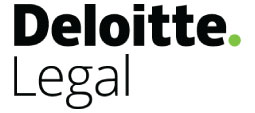The EU Directives on Work-life balance and on Transparent and predictable working conditions were introduced into the Latvian national legislation in August 2022 and brought about significant changes and obligations for the employers. What do they mean for businesses?
This report is designed to help companies to understand the requirements and how they have been implemented.
Implementation of EU Directives on Work-Life Balance (EU Directive 2019/1158) and on Transparent and Predictable Working Conditions (EU Directive 2019/1152)
Have the directives been implemented in the jurisdiction?
Yes.
What is the status of the implementation or draft implementation?
The directives have been implemented into the Slovak Labour Code. The National Council of the Slovak Republic accepted the Amendment of the Labour Code on 04 October 2022, and the President signed it on 21 October 2022.
The new Labour Code came into force on 01 November 2022.
What are the key changes for employers and employees?
- Paternity leave (“otcovska dovolenka”)
- Paternity leave shall be granted for the purpose of caring for the new-born child by the father.
- In practice, this amounts to the transformation of the current parental leave granted to the man/father into paternity leave.
- The leave shall last for up to 2 weeks (14 calendar days), and can be taken in the first 6 weeks following the birth of the child.
- The leave will be paid by the Social Insurance Agency.
- Probationary period
- For an employee with a fixed-term employment relationship (and only for these employees), the agreed probationary period shall not be longer than half of the agreed duration of the employment relationship itself.
- The maximum length of the probationary period - 3 months, or 6 months for senior employees -
remains unchanged.
- Information on working conditions
- The employer is obliged to inform the employee in writing about certain working conditions and any changes to them if these are not specified in the employment contract.
- The deadline for providing such information is 4 weeks from the date of commencement of the employment (or 7 days in certain cases).
- The employer has the right to choose whether the information about working conditions will be provided to the employee separately in written form (when an electronic form can be used), or if they should agree on them as additional working conditions in the employment contract.
- Employers are subject to new information obligations, namely to inform the employee:
- About the deadline for filing a lawsuit to determine the invalidity of the termination of the employment relationship; and,
- On the right to and scope of any professional training provided by the employer.
- Right to request a change to more stable working conditions
- The amendment introduced the opportunity for an employee who works part-time and for a fixed period, and whose employment relationship is longer than 6 months, to submit a request for transition to an employment relationship with more stable working conditions (e.g. to full-time working or to a fixed weekly working time for an indefinite period).
- The employer is obliged to provide a written, reasoned response to such a request within 1 month. This one-month period also applies to every subsequent application by the employee, which he or she submits no sooner than 12 months after the previous application.
- Essential elements of an employment contract
- The amendment introduced new essential elements of an employment contract, namely:
- The identification data of the employer and the employee (such as the name of the company and its registered office or place of business, and data on the employee, such as name, date of birth and place of permanent residence).
- The change also affects employees with a place of work outside the territory of the Slovak Republic. It introduces the essential elements of such contracts.
- The amendment introduced new essential elements of an employment contract, namely:
- Freedom to carry out other gainful activities
- The amendment explicitly introduces a ban to prevent employers from restricting employees from performing other gainful activities in their free time.
- The ban does not apply to competitive activities,
where the employee still needs to request the
employer’s permission. - Consent will not be required to carry out scientific, educational, journalistic, lecturing, literary or artistic activities.
- Employee rights and protection against termination of employment
- In the event that the employee testifies in a court case that the termination of his or her employment occurred because he or she exercised their rights (e.g. filed a complaint with the National Labour Inspectorate), the employer will have to prove that the termination occurred for other reasons.
- Changes in the regulation of agreements conducted outside the employment relationship
- Employers are required to provide written information about the days and time periods during which they may require an employee to perform work.
- If the employer cancels the performance of the work less than 24 hours before it was due to be carried out, the employee is entitled to compensation of at least 30% of the remuneration he or she would have received for carrying out the work.
- Delivery
- For the first time, the Slovak Labour Code establishes a general minimum storage period of 10 days for the delivery by post of parcels (i.e. labour documents).
- Greater space for unions
- Following the amendment, the right of a trade union to approach an employee in an appropriate manner with the purpose of offering membership in it has been modified.
- Trade unions should agree with the employer on the method of approaching employees.
- If no such agreement is reached, the employer is obliged to provide the employee with written information about the existence of trade unions.
- Trade unions are allowed to publish reports about their activities, including in the employer's electronic information system.
What are the main actions for HR departments in preparing for the changes?
- Review and revise internal labour documentation, such as:
- The HR policy or similar work regulations;
- Remuneration regulations or other employment policies and practices;
- Templates, application forms etc.;
- On- and off-boarding procedures (if these exist) etc.
- Training to acquaint HR colleagues with the new rules and new obligations for employers.
By Robert Minachin, Senior Managing Associate, and Boglarka Nagyova, Associate, Deloitte Legal Slovakia
This communication contains general information only, and none of Deloitte Touche Tohmatsu Limited (“DTTL”), its global network of member firms or their related entities (collectively, the “Deloitte organization”) is, by means of this communication, rendering professional advice or services. Before making any decision or taking any action that may affect your finances or your business, you should consult a qualified professional adviser. No representations, warranties or undertakings (express or implied) are given as to the accuracy or completeness of the information in this communication, and none of DTTL, its member firms, related entities, employees or agents shall be liable or responsible for any loss or damage whatsoever arising directly or indirectly in connection with any person relying on this communication. DTTL and each of its member firms, and their related entities, are legally separate and independent entities.


